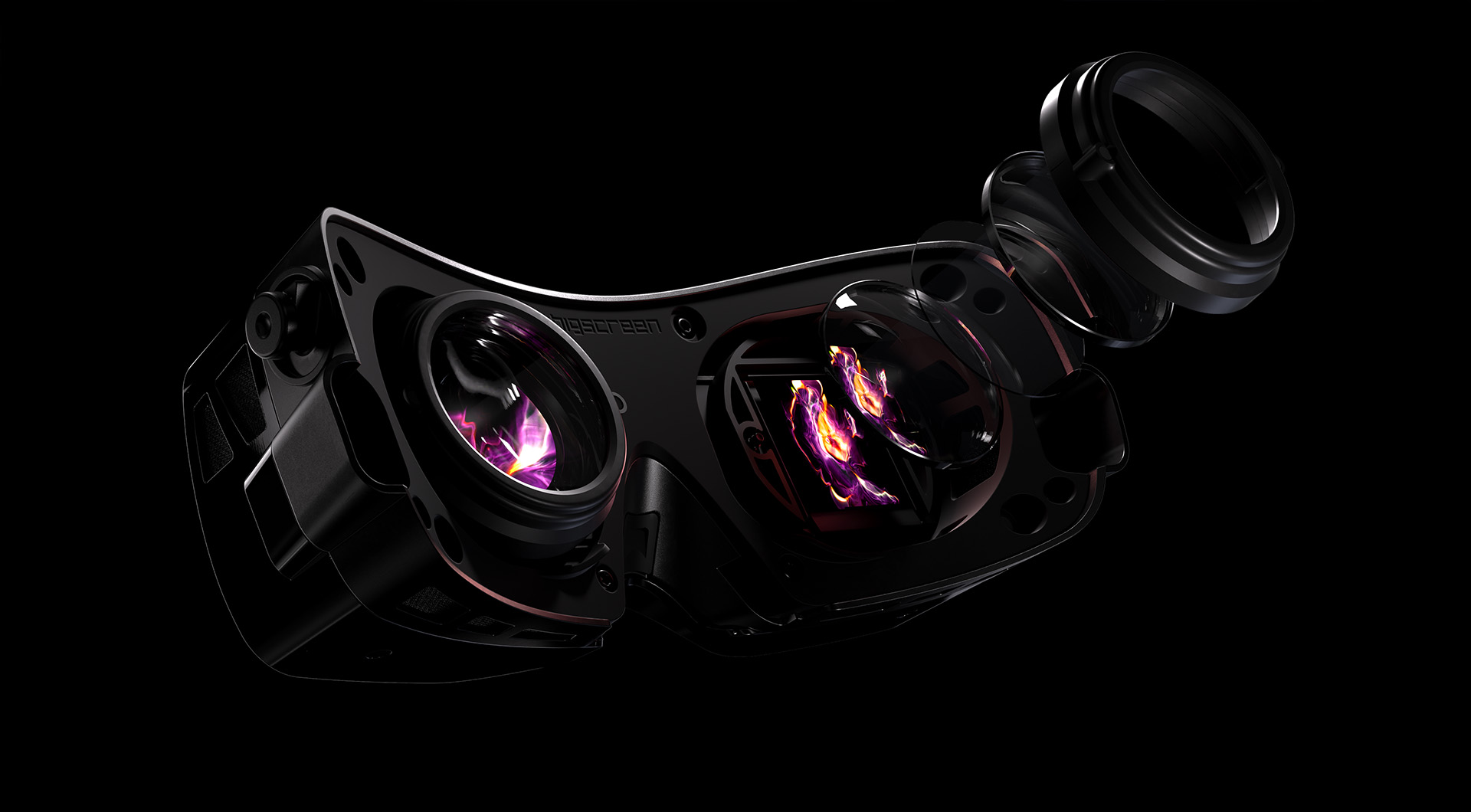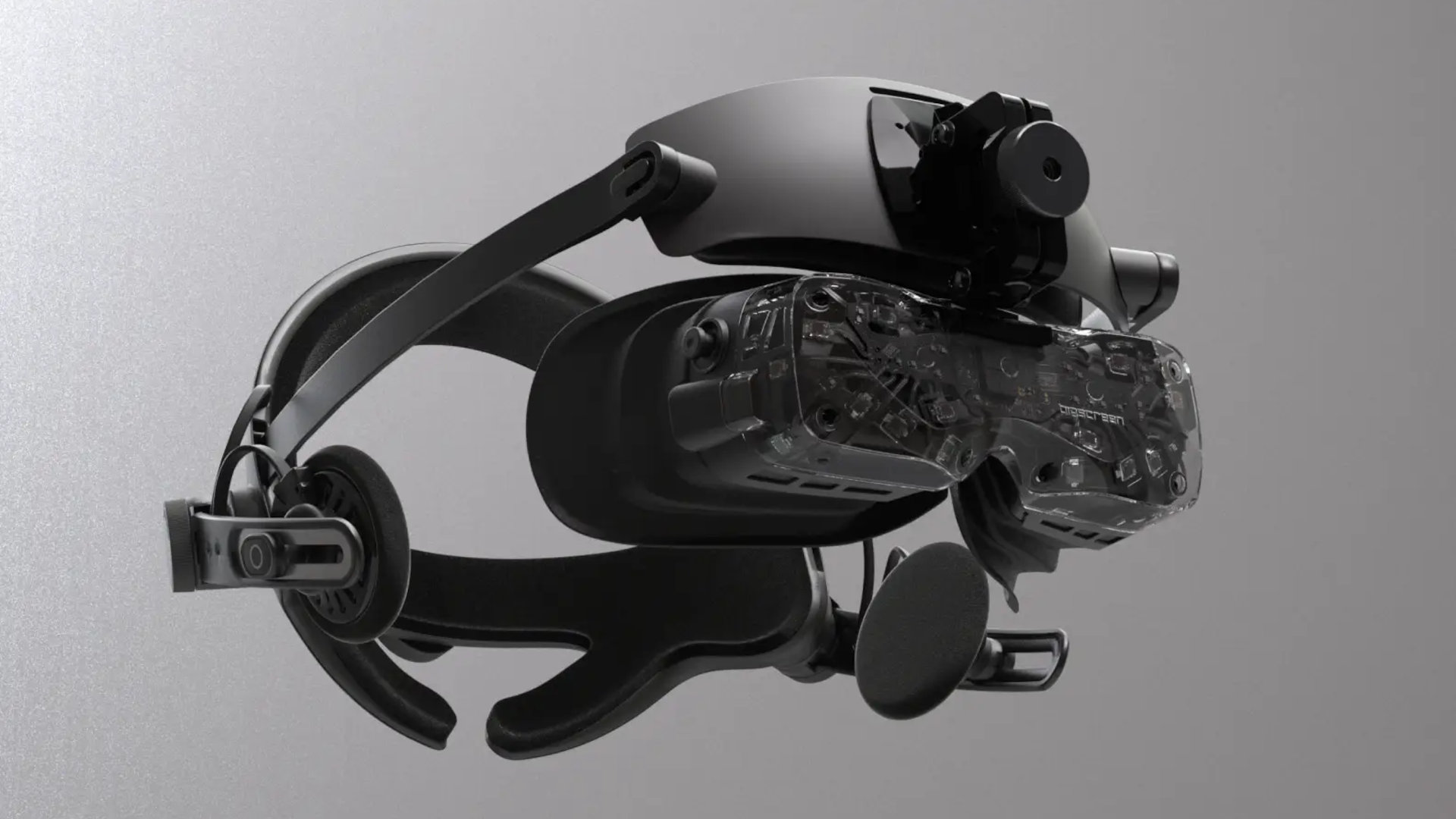
If you've spent the better part of $1,000 on a high-end VR headset and perhaps the same again on a graphics card, you'd be pretty frustrated to find it didn't work properly on your Linux gaming rig.
Imagine how you'd feel if the problems continued for more than a year. That's been the exact situation for some Bigscreen Beyond owners, but the end is nearly in sight, as Nvidia promises a fix with its next major driver release.
It's not exactly clear when the problem was first noticed, but a post on Nvidia's discussion forum, dated May 2024, at least sets the scene. The opening message in the thread, by user Babblebones, is pretty straightforward: "The Bigscreen Beyond HMD [head-mounted display] is not able to be utilized on either the Nvidia proprietary or open kernel drivers."
That's rapidly followed by other users reporting the same issue, with one providing a photo of what they see in each of the VR headset's lenses—half the image is nothing but garbled static, making the device essentially unusable.
A few more users confirm the problem until Nvidia's staff steps in to confirm that it also had issues with the headset, but had resolved the problem in its Windows drivers. Unfortunately, the staff member couldn't say when Team Green would be able to do likewise with its Linux set.

Months go by with Bigscreen Beyond owners popping into the thread to see if there was a solution to hand, only to have their hopes dashed with Nvidia reporting no progress at all. Then, after a full year from when the thread was opened, a short announcement was posted:
"We’ve root caused the problem (the driver was not properly handling the “DSC pass-through” bit from the EDID). The fix should be available in an upcoming release. I’m very sorry for all the delays."
Let me decipher some of that for you. DSC stands for Display Stream Compression, a feature of DisplayPort that greatly reduces the amount of data required for a video stream, without any noticeable loss in quality. Pass-through refers to a system where a display device can receive a DSC video stream and then just 'send it on' without needing to decompress and then recompress it.
Pass-through is needed on VR headsets to seamlessly blend multiple video streams into a coherent image, especially if one is using an augmented or mixed reality mode.
EDID, or Extended Display Identification Data, is how a display tells a graphics chip what resolution, refresh rates, timings, etc, it can do. In short, the Linux drivers were mangling the information about DSC Pass-through, resulting in the headset producing garbled images.

Yesterday, Nvidia announced when the solution itself would be released: "The fix will be included in our 580 release series. I apologize for the delays." Unfortunately, there's no word on when the 580 driver set will make an appearance, but given that the latest Linux 64-bit 575.64 Feature Branch set is dated July 1, we probably won't have too much longer to wait.
For Bigscreen Beyond owners who have been essentially unable to use their lightweight VR headsets, the drivers can't come soon enough. At least the end of the painful road is now in sight…if one pardons the pun.







